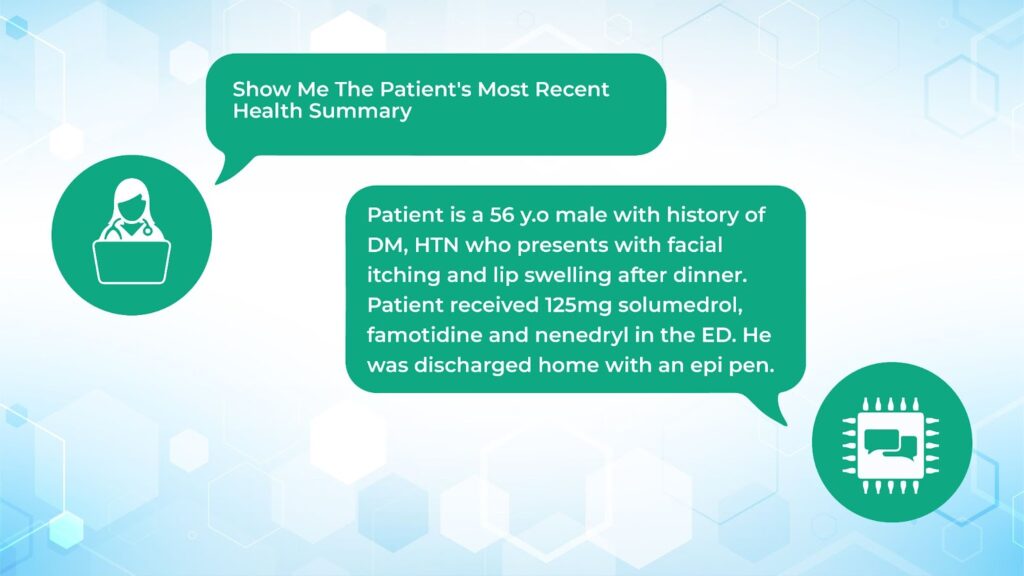
Artificial Intelligence has often been hailed as the ‘next big thing’ in technology. This idea gained more traction when ChatGPT introduced the world to the infinite possibilities of trained AI systems. Gradually, businesses identified the benefit of ChatGPT for easing daily operations and acquiring expert insights. Healthcare is no different.
The primary benefit of ChatGPT in healthcare is the significant personalization it offers. As big data takes centre stage in healthcare, the medical industry has more data than it can analyze. Using a digital program that assesses these large datasets in seconds is crucial for enhancing patient care.
But this is the tip of the iceberg. ChatGPT is believed to have more applications in healthcare as the use cases become clearer. Here is a brief look at some major uses of this AI chatbot in improving healthcare.
Upcoming ChatGPT Applications in Healthcare
A survey published in the Cancer Research, Statistics, and Treatment Journal highlighted the perception of the healthcare industry towards generative AI systems like ChatGPT. The overall results were mostly positive, as the following results were observed:
- 52.2% of the respondents believed that ChatGPT would boost their careers
- 72% of healthcare professionals stressed that ChatGPT would have a lasting impact on the human civilization
But how much weight do these claims carry? Here are a few upcoming use cases of ChatGPT in healthcare to give you a clearer idea:
Evidence-Based Recommendations
ChatGPT harbors the ability to look up digital records in seconds. It can provide concise information about latest studies and insights into medical interactions. In turn, this will help doctors make better decisions in the context of patient care.

Furthermore, it could use datasets to analyze the ideal treatment course. This would help doctors detect potentially life-threatening conditions earlier.
Here’s how it can provide comprehensive support to the healthcare domain:
- Enable faster diagnosis by matching the patient’s symptoms with the relevant condition
- Provide insights into the latest research in healthcare to power decisions
But the ultimate call will still belong to the doctor. ChatGPT is an assistive technology that will only help improve the quality of decisions and lead to better treatment.
Round-the-Clock Patient Care
Devices like the Apple Watch and Fitbit already comprise AI assistants that help track calories and measure heart rate. As the functions of ChatGPT expand with future updates, it is completely possible to embed it as a virtual assistant in medical devices.

For instance, it can ensure complete patient care in the following ways:
- Tracking the body systems of the patient throughout the day
- Predicting and tracking their next medical appointment
- Alerting patients about their health and providing updates
While it might not be affordable to hire a 24/7 nurse, AI systems can ensure comprehensive patient care at a lower cost.
Reducing Manual Errors
Did you know that out of all patients undergoing surgery in a year, 3% of them experience a problem during surgeries?
Even more astounding is the fact that 54% of these incidents are preventable.
But with ChatGPT in the medical domain, it would be easier to spot and solve these errors. Here’s how it can help:
· Automate the error-reporting process for a more streamlined approach
· Assess datasets to check for the common errors
· Chart out customized patient safety initiatives to reduce errors
Plus, it can offer a simulation for medical students and provide real-time advice. ChatGPT promises to create a culture centred around patient safety and reduce manual errors.
Medication Management
It can be challenging for patients to keep track of their dosages. Individuals taking several medications at once may find it especially more difficult. Incorrect dosage can lead to severe complications that might need immediate medical intervention.

To prevent such cases, ChatGPT can perform the following functions:
- Track medication dosages
- Intimate patients about unfavorable drug interactions
Provide constant reminders to take the appropriate medicine
Sorting Volunteers for Clinical Trials
Clinical trials form an important step in the drug approval process. Hence, it is vital to ensure that these medicines are tried on the intended audience to produce accurate results.
ChatGPT can analyze thousands of datasets in a few seconds. This is useful to sort out volunteers who match the eligibility criteria of the clinical trials.
Summing Up
ChatGPT in healthcare promises to change the landscape of the medical domain and make it easier for doctors to handle patient care. It is a valuable tool to assist medical professionals and empower them to make faster diagnoses and better decisions for improved medical practice.
As Open AI develops ChatGPT and makes it more equipped to handle various applications, the medical industry might be one of the first adopters of this technology. But it remains to be seen how AI is adapted to suit medicine and healthcare in general.

